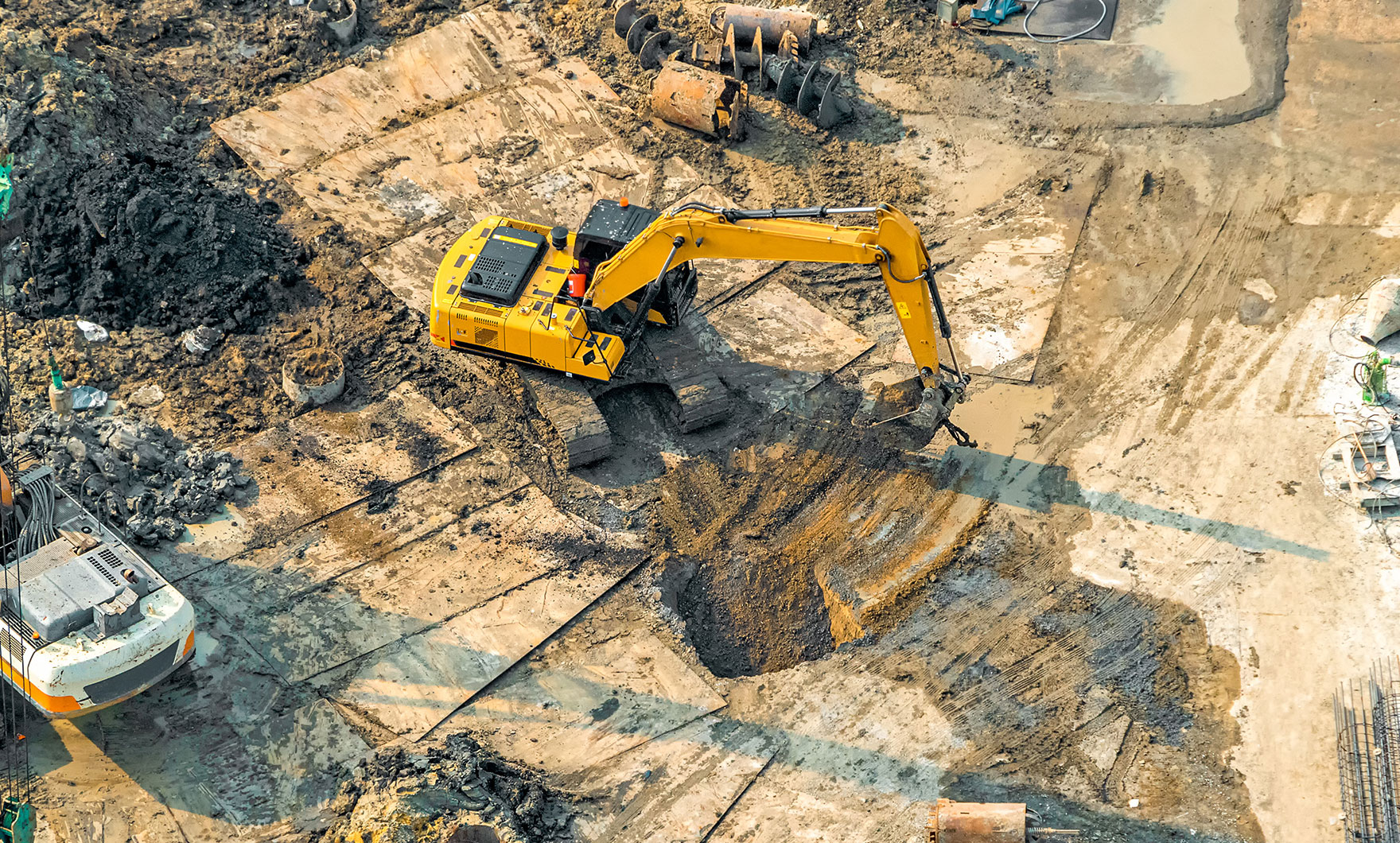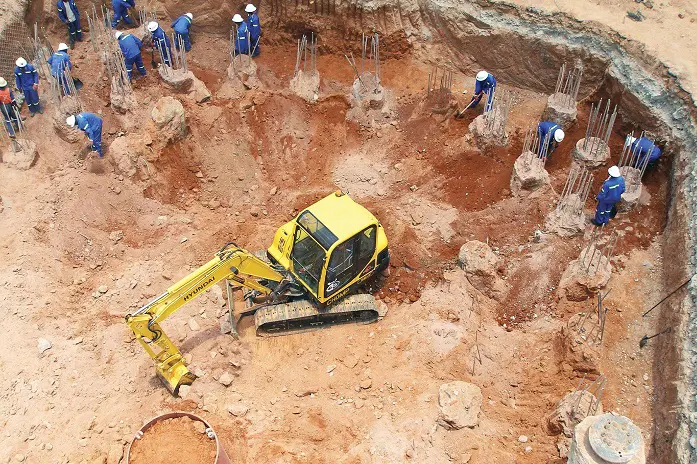Understanding the Fundamentals: About Geotechnical Engineering in Modern Construction
Understanding the Fundamentals: About Geotechnical Engineering in Modern Construction
Blog Article
The Value of Geotechnical Design in Resolving Environmental Challenges and Enhancing Construction Safety
Geotechnical engineering works as a keystone in the intersection of ecological stewardship and building security, giving crucial insights into the behavior of soil and rock under different problems. This self-control not only addresses pushing environmental obstacles such as dirt erosion and groundwater security but also enhances the robustness of facilities versus natural dangers. By implementing critical site investigations and customized reduction steps, geotechnical designers play an important duty in safeguarding both human lives and ecological honesty. Yet, the intricacies of these difficulties increase crucial questions regarding the future instructions of this field and its effects for sustainable advancement.

Duty of Geotechnical Design
Geotechnical engineering plays an essential duty in the style and building and construction of framework by addressing the behavior of dirt and rock materials under different conditions. This field of engineering is important for recognizing the interaction between structures and the ground, that includes identifying the load-bearing ability of dirt, assessing security, and anticipating potential negotiation or failure.
Geotechnical engineers are in charge of performing website examinations, which involve sampling and testing dirt and rock to collect data on their chemical and physical homes. This info is vital for creating foundations, keeping wall surfaces, and various other earth-retaining structures that guarantee safety and security and long life. Geotechnical design informs the selection of ideal building and construction approaches and products, thus minimizing dangers associated with dirt habits.
Moreover, the combination of geotechnical engineering concepts right into urban planning and ecological monitoring is vital for attending to obstacles such as ground contamination and groundwater management. By comprehending geotechnical factors, engineers can establish sustainable remedies that enhance the resilience of framework versus natural hazards, while also advertising environmental stewardship. Eventually, the role of geotechnical engineering is crucial for achieving risk-free, resilient, and eco mindful building and construction practices.
Soil Erosion Mitigation
Dirt erosion positions a significant hazard to both ecological security and facilities stability, impacting about 24 billion lots of productive soil lost yearly worldwide. This phenomenon is aggravated by factors such as deforestation, urbanization, and inadequate farming techniques. Geotechnical design plays a critical function in establishing effective soil disintegration reduction approaches that protect both the atmosphere and building projects.
One technique entails the implementation of disintegration control techniques such as plants planting, which stabilizes soil through origin systems. Furthermore, the building and construction of maintaining balconies and walls can efficiently decrease surface drainage and protect susceptible areas from erosion. Appropriate drain design is additionally important; it decreases water accumulation and routes excess overflow away from essential frameworks.
Additionally, geotechnical engineers employ soil stabilization techniques, such as the application of geotextiles and eco-friendly mats, to boost soil communication and stop deterioration - about geotechnical engineering. Regular tracking and assessment of erosion-prone websites allow timely interventions, making sure lasting sustainability. By incorporating these approaches, geotechnical design not only alleviates the impacts of dirt erosion yet also adds to the resilience of facilities versus ecological difficulties, eventually fostering a much safer and much more sustainable built setting
Groundwater Defense Techniques
Groundwater works as a crucial source for alcohol consumption water, farming, and industrial procedures, making its security necessary for environmental sustainability and public wellness. Efficient groundwater protection approaches are crucial in alleviating contamination dangers and making certain the durability of this resource.

Normal monitoring of groundwater top quality is additionally necessary, enabling early detection of contamination sources and helping with prompt remediation efforts. Employing innovative technologies, such as geophysical studies and remote sensing, help in determining prospective hazards to groundwater reserves.
Moreover, public education and stakeholder engagement are essential, cultivating community assistance for groundwater security efforts. geotechnical companies in south africa. By combining regulatory actions, technical developments, and neighborhood participation, we can create a thorough structure that safeguards groundwater sources while advertising sustainable advancement and building and construction practices
Landslide Danger Administration
Landslides present substantial risks to both human security and framework, making effective threat monitoring approaches essential. Geotechnical design plays a crucial role in recognizing, analyzing, and mitigating landslide dangers. A comprehensive understanding of incline stability, soil technicians, and hydrology is important for developing effective risk management plans.
The first action in landslide danger management involves comprehensive site investigations, that include geological mapping and dirt screening. These examinations assist engineers review the possibility for landslides by identifying essential factors such as slope angles, soil their explanation make-up, and water web content. Utilizing innovative modern technologies such as remote picking up and geophysical studies can boost the precision of these evaluations.
When dangers are identified, appropriate reduction actions can be applied. These might include engineering solutions such as retaining wall surfaces, look what i found water drainage systems, and slope stablizing strategies. Moreover, keeping an eye on systems must be established to spot signs of ground activity and modifications in water levels, enabling aggressive interventions.

Enhancing Building And Construction Safety And Security
Building and construction websites frequently present a myriad of risks that can endanger worker security and job stability. Geotechnical engineering plays an important function in boosting building and construction safety and security by giving crucial understandings right into subsurface conditions. Through extensive soil and rock evaluation, geotechnical designers can determine prospective dangers, such as soil instability, groundwater concerns, and seismic susceptabilities, which might jeopardize the safety of construction tasks.
Carrying out geotechnical options, such as appropriate foundation layout and using keeping structures, minimizes these dangers considerably. These services not just make sure the stability of here the frameworks being constructed however also develop a much safer working environment for building and construction workers. Additionally, strenuous tracking and analysis of website conditions throughout the construction process are crucial. Making use of advanced innovations like ground-penetrating radar and inclinometer systems allows real-time data collection, enabling timely treatments when risks are detected.
Furthermore, cultivating a society of safety through training and adherence to established security procedures better boosts construction site safety. By integrating geotechnical experience right into the preparation and implementation stages, building and construction tasks can achieve higher safety standards, ultimately protecting workers and ensuring successful project conclusion.
Verdict
In final thought, geotechnical engineering offers as a vital discipline in advertising and dealing with ecological difficulties construction safety and security. Through reliable soil disintegration mitigation, groundwater defense techniques, and landslide threat management, geotechnical designers contribute to the advancement of resilient facilities.
Geotechnical engineering offers as a foundation in the junction of environmental stewardship and building and construction safety, giving vital understandings into the habits of dirt and rock under different problems. Geotechnical engineering informs the option of proper construction techniques and products, thereby lessening threats associated with dirt actions.
Geotechnical engineering plays an essential duty in developing efficient dirt disintegration reduction techniques that secure both the setting and construction projects.
Additionally, geotechnical designers use soil stabilization methods, such as the application of geotextiles and eco-friendly floor coverings, to enhance soil cohesion and avoid deterioration. Via comprehensive soil and rock analysis, geotechnical engineers can determine prospective threats, such as dirt instability, groundwater concerns, and seismic vulnerabilities, which may compromise the security of building activities.
Report this page